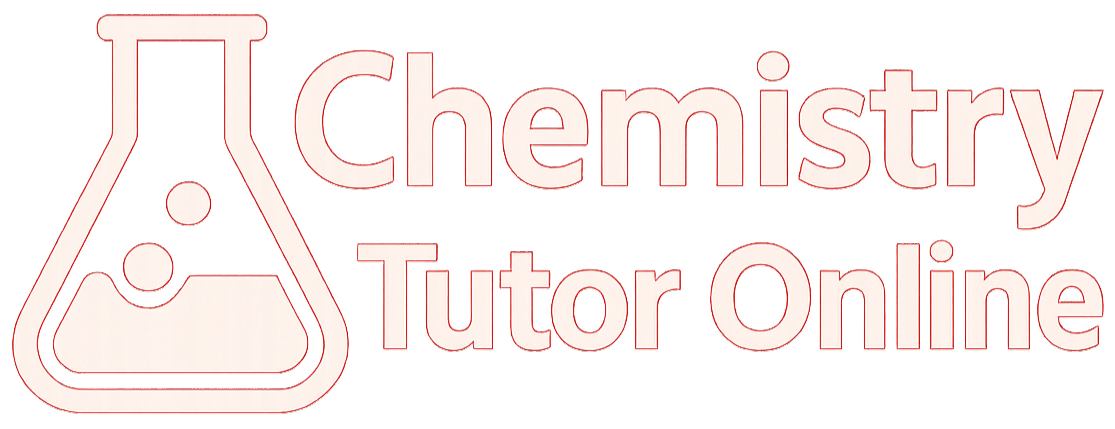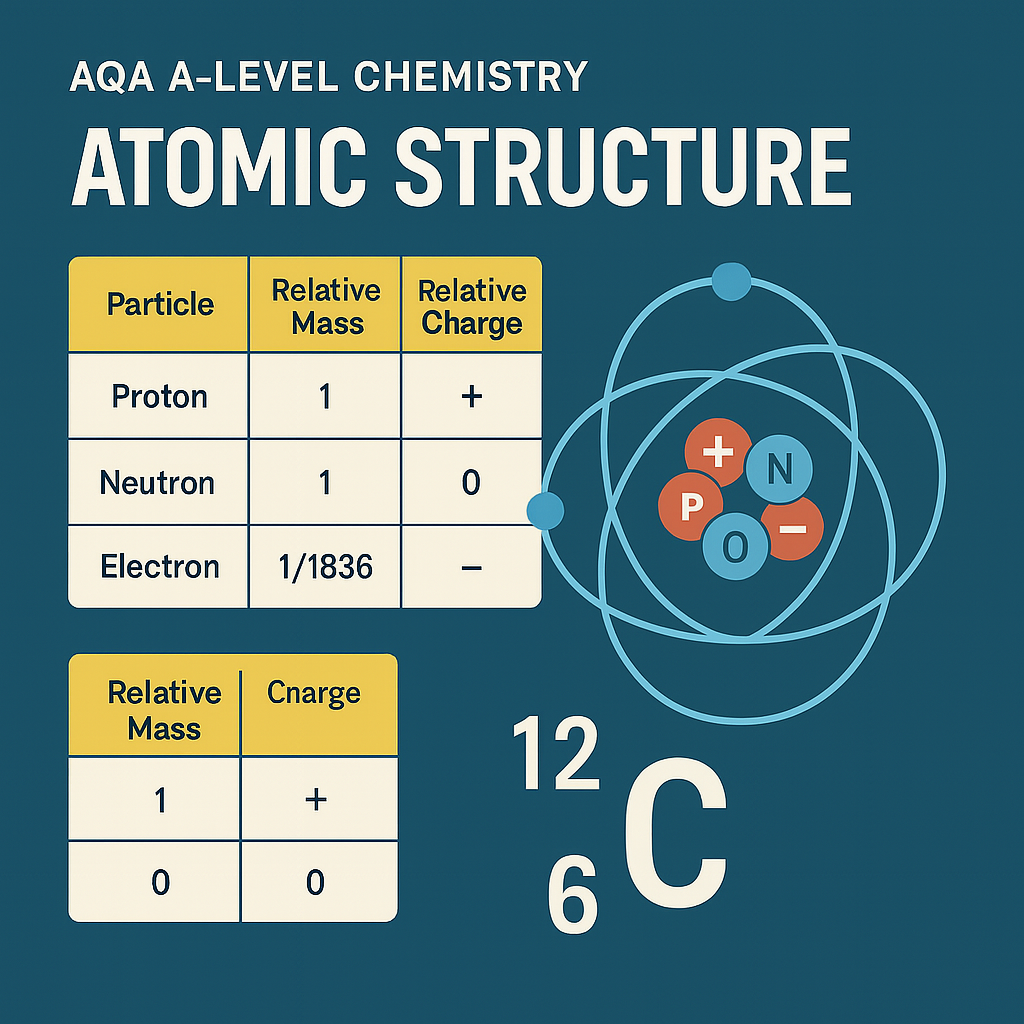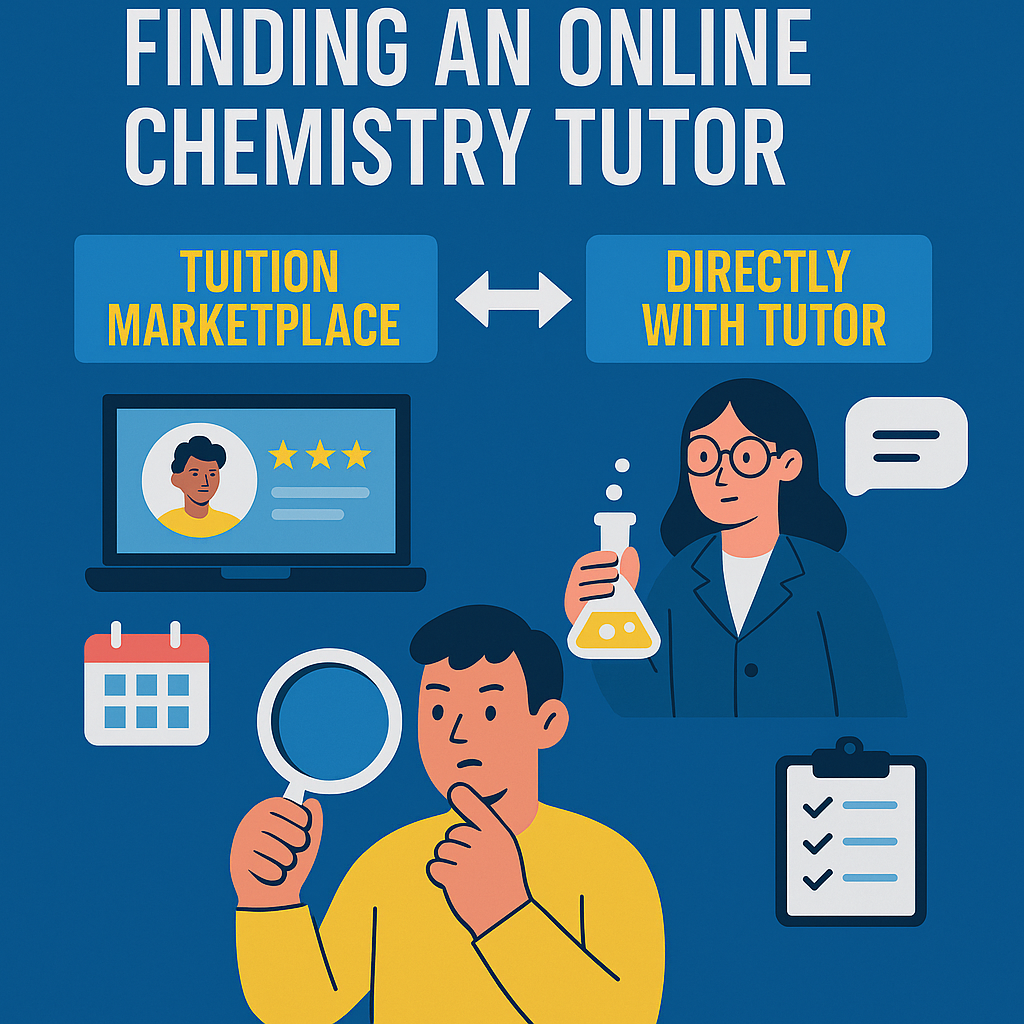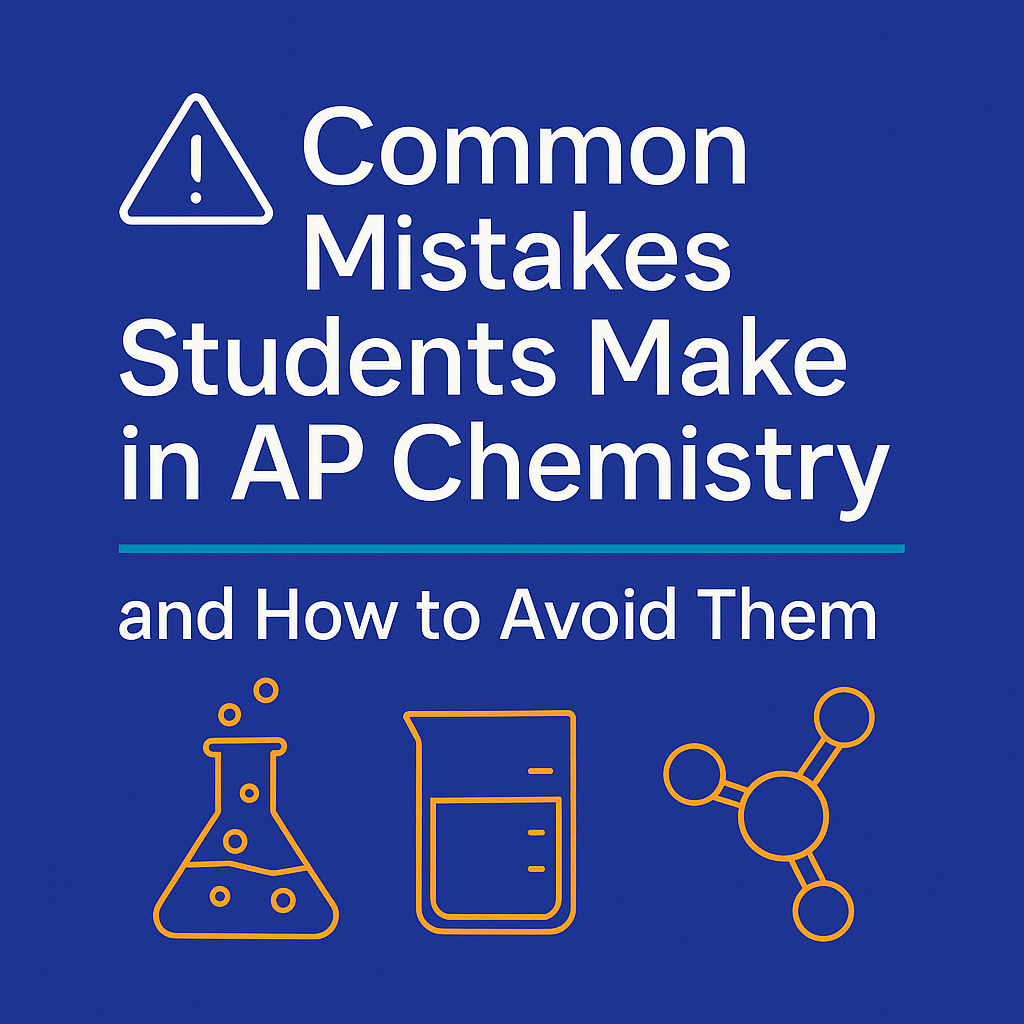Tuition Marketplace vs Direct Booking: How to Find the Right Online Chemistry Tutor:
Should you book a tutor via a tuition marketplace platform or find and work with an independent tutor directly through their website?
Looking for an online chemistry tutor? You’re not alone.
With the rise of digital learning, more students and parents are turning to online tutoring to get the support they need. Whether it's GCSE, A-Level, IB, or vocational chemistry, finding the right tutor can make a huge difference to your confidence, grades, and long-term success.
But when you start looking, you're quickly faced with a choice:
Should you book a tutor via a tuition marketplace platform like MyTutor, Superprof, or Tutorful?
Or should you find and work with an independent tutor directly through their website?
Both options have pros and cons, and the best choice depends on your goals, budget, and expectations.
What is a Tuition Marketplace?
Tuition marketplaces are platforms that connect students with tutors. Think of them like Airbnb or Uber, but for education. You browse tutor profiles, filter by subject and level, read reviews, and book lessons through the site.
Popular examples include:
MyTutor
Tutorful
Superprof
First Tutors
GoStudent
They typically handle:
Payments
Scheduling
Lesson software (in some cases)
Reviews and matching tools
What Does It Mean to Work Directly with a Tutor?
This means you find a tutor independently, often through:
A Google search
Word of mouth
A blog post or expert article
A subject-specific tutoring website
You communicate directly with the tutor, book sessions via their preferred system, and deal with them one-to-one rather than through a third-party platform.
Pros and Cons: Tuition Marketplace vs Direct Tutor
Let’s compare the two approaches in terms of quality, trust, flexibility, cost, and long-term value.
1. Quality and Expertise
Marketplace:
Marketplaces offer a wide range of tutors, from university students to PhD holders. You can filter by reviews, education level, and hourly rate. Some platforms vet tutors (such as background checks or trial lessons), but quality can vary significantly.
Direct Tutor:
Tutors who work independently often have more experience and deeper subject specialisation. Many run their own businesses and offer tailored support, such as exam-board specific tuition or Olympiad preparation. Their websites typically include detailed qualifications, case studies, and testimonials.
Verdict:
If you are looking for a subject expert in chemistry, especially at A-Level, IB, or for a resit, a direct tutor is often more experienced and focused.
2. Convenience and Ease of Use
Marketplace:
These platforms make it easy to search and instantly book a tutor. Some provide built-in scheduling, lesson software, and messaging tools. This setup works well for quick or casual tuition.
Direct Tutor:
Finding a direct tutor may take a bit more effort. Booking is usually handled through email, Calendly, or a website booking form. Every tutor may use slightly different tools, so it is less standardised.
Verdict:
If speed and simplicity are your main priorities, marketplaces are more convenient. For more in-depth, long-term support, working directly is worth the effort.
3. Cost and Value for Money
Marketplace:
Hourly rates typically range from £35 to £80 or more. The platform usually takes a percentage, so the tutor receives less than you pay. Prices are often fixed, with little room for discounts or bundles.
Direct Tutor:
Direct tutors may charge similar or slightly higher rates, but you are paying the tutor directly, and they receive the full amount. Some offer discounts for regular bookings or group sessions, and there are no platform fees.
Verdict:
Direct tutors generally offer better long-term value, especially for consistent weekly sessions.
4. Flexibility and Personalisation
Marketplace:
Tutors on marketplaces often follow platform rules. Some do not allow sharing personal contact info or scheduling outside the platform. Lessons may follow a fixed structure, and materials are not always personalised.
Direct Tutor:
Independent tutors can fully tailor lessons to the student's needs, exam board, and learning style. They can offer custom support such as written feedback, recorded sessions, or revision strategies specific to OCR, AQA, Edexcel, or IB.
Verdict:
If you are looking for fully personalised, exam-specific tuition, direct tutors are typically more flexible and better equipped.
5. Trust and Safety
Marketplace:
Marketplaces use reviews, verification processes, and secure payment systems to build trust. Some offer a satisfaction guarantee or customer support if issues arise.
Direct Tutor:
Trust is built through their website, testimonials, and direct communication. While there may not be a centralised review system, most professional tutors are happy to share results, feedback, and qualifications on request.
Verdict:
Marketplaces offer convenience for first-time users, but independent tutors can build strong, personal trust over time through transparency and results.
6. Educational Extras and Support
Marketplace:
Resources may be shared during lessons, but they are usually generic. Platforms rarely provide anything beyond the one-to-one session.
Direct Tutor:
Direct tutors often offer blog posts, revision packs, recorded lessons, mock exam marking, or IA/practical coaching. Some run free group tasters or email revision tips as well.
Verdict:
If you want ongoing support outside the lesson, direct tutors typically go further to help students succeed.
Which One Is Right for You?
Here is a quick comparison based on your situation:
If you need a quick trial session today, a marketplace might be more convenient.
If you want a subject expert in chemistry who knows the curriculum inside out, a direct tutor is the better choice.
If you are on a tight budget or just need a few sessions, a marketplace could be cheaper.
If you want weekly structured support with real exam insight, a direct tutor offers greater long-term value.
If you are concerned about safety or no-shows, marketplaces offer some initial peace of mind.
If your child needs tailored support for their exam board or an upcoming assessment, working directly is more effective.
Example: A-Level Chemistry
Let’s say your child is preparing for A-Level Chemistry with the OCR A exam board. They are aiming for an A or A*, and they struggle with physical chemistry and exam technique.
A marketplace tutor may provide general support, but they may not understand the OCR A mark scheme or how to teach command words effectively.
A direct tutor who specialises in A-Level Chemistry can:
Provide insight into OCR A assessment objectives
Offer guidance on exam strategy and time management
Tailor the pace and depth to the student’s needs
Give detailed written feedback on past papers
Help build revision notes and track progress
In this case, the added expertise and tailored support from a direct tutor is likely to produce stronger results.
How to Find a Direct Chemistry Tutor You Can Trust
If you decide to work directly with a tutor, here’s what to look for:
A clear website with subject focus and testimonials
Qualifications in chemistry and experience at the relevant level
Knowledge of the relevant exam board (AQA, OCR, Edexcel, IB)
Transparent pricing and a professional approach
A free consultation or trial session to get started
Resources such as blogs, downloads, or newsletters that support learning
Conclusion
Tuition marketplaces are a convenient starting point for finding help with chemistry, especially if you need a quick fix or flexible schedule.
However, if you are serious about long-term progress, exam confidence, and subject mastery, working directly with a chemistry tutor offers greater flexibility, deeper support, and more value for money.
Direct tutors are often better qualified, more invested in their students' success, and able to offer a more personal, tailored experience.
If you’re looking to support your child in achieving their best in GCSE, A-Level, IB, or vocational chemistry, consider working directly with a tutor who specialises in the subject and is committed to helping students thrive.
Ready to get started? Book a free 15-minute consultation with an experienced chemistry tutor today.
Need personalised help? Book a 15-minute consultation with Dr Marguerite Quinn and get expert guidance tailored to your goals.





Understand AQA A-Level Chemistry Section 3.1.1.2 on mass number and isotopes. Learn key definitions, isotope notation, calculations, and how this topic builds your scientific and exam skills.